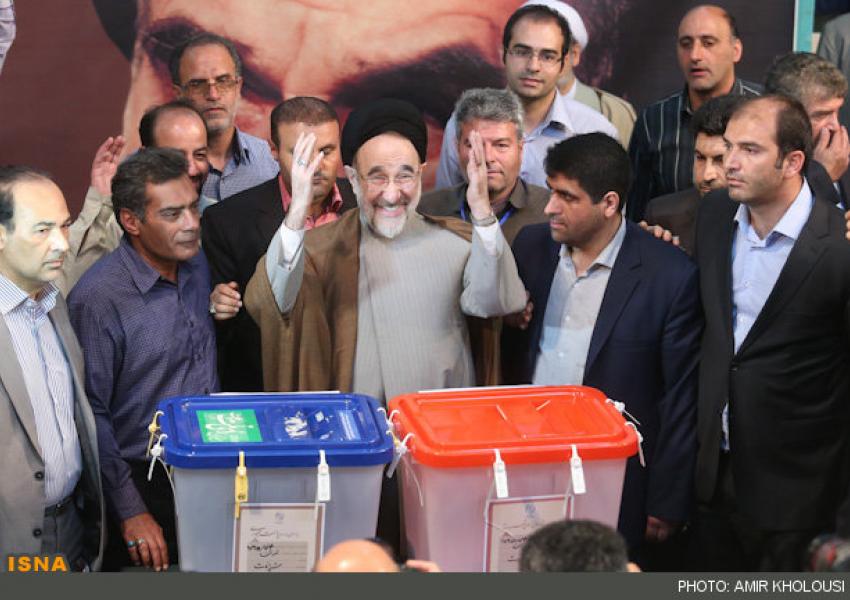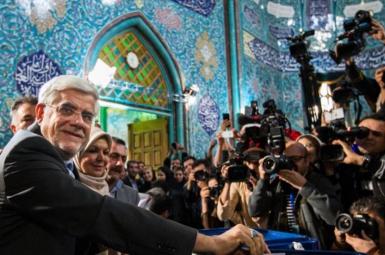
Iran Reformists Say They Will Not Support Any Candidates In Presidential Poll
The Iranian Reformist Front in a statement on Wednesday said they would not support any candidates in the June 18 presidential election due to the constitutional watchdog's passing over every candidate they might have backed.
"This, in our view, does not solely mean the elimination of reformists,” the statement read. “The main message [from the watchdog Guardian Council] in fact is elimination of people from the process of making decisions about the country's affairs …We are making this report to the great Iranian nation so that they, the real owners of the country, know about our efforts as well as sabotage of the others.”
The message from reformists of not backing any candidate could be seen as a subtle signal to their supporters not to cast ballots in an election already expected to attract the least number of voters in the Islamic Republic’s history. Several polls have shown less than 50 percent participation. A poll conducted for Iran International showed only 27 percent of eligible voters inclined to participate.
The Reformist Front includes parties and groups ranging from Islamic left such as the banned Mosharekat (Participation) Party to the technocratic conservative Kargozaran-e Sazandegi (Servants of Construction) Party established by former president Akbar Hashemi Rafsanjani. Former president Mohammad Khatami, generally seen as the most influential figure in the Reformist Front, has been banned from travelling abroad for years. Two other reformists, Mir-Hossein Mousavi and Mehdi Karrubi, under house arrest since February 2011, led the ‘green movement,’ which developed in after they two men lost the disputed 2009 presidential election to Mahmoud Ahmadinejad.
There was no surprise in the Guardian Council’s disqualification of Mostafa Tajzadeh, a leading Mosharekat member, who had said he wanted to return the Revolutionary Guards (IRGC) to their barracks. In a statement on Tuesday, Tajzadeh said he would continue efforts "to put an end to election-engineering" by “the political party run by the military,” a probable allusion to IRGC generals.
While the approved list of seven candidates includes one reformist, former vice-president Mohsen Mehralizadeh, the list has been widely seen as clearing the way for Chief Justice Ebrahim Raeesi (Raisi) to win the election.
Reformists parties and groups have generally participated in presidential elections, sometimes backing candidates not from their own camp as when they backed Hassan Rouhani in 2013 and 2017, partly because he wanted to improve relations with world powers, especially over Iran’s nuclear program.
As well as not including Tajzadeh, the council disqualified the centrist-conservative Ali Larijani, the former parliamentary speaker who mobilized support in parliament including over the 2015 nuclear deal, and vice-president Es'hagh Jahangiri. Larijani and Jahangiri both said Tuesday they would not appeal the Guardian Council's decision, warning against the consequences while asking Iranians to participate in the election.
Former president Mahmoud Ahmadinejad, who was also not included in the list of candidates, said several times before the approved candidates were announced that he would not vote if the Guardian Council barred him. Both Dolat-e Bahar, a pro-Ahmadinejad website, and his personal website (Ahmadinejad.ir) went off the grid on Wednesday for a few hours, but not before Dolat-e Bahar had reported that the IRGC security chief in Tehran had visited Ahmadinejad on Monday and warned him against any protests.








